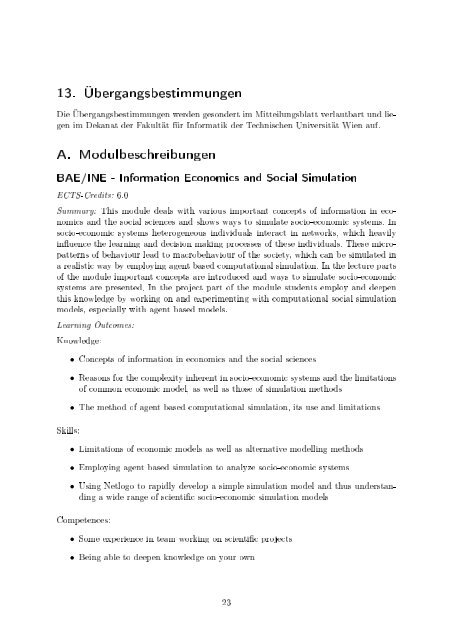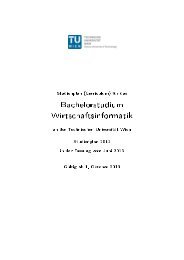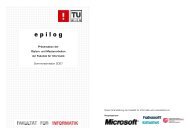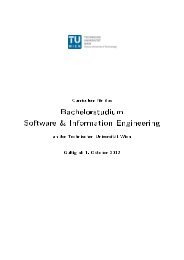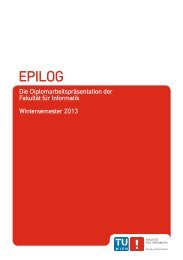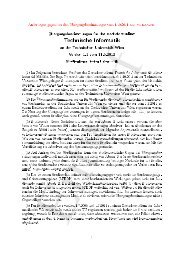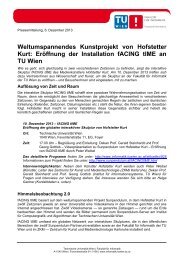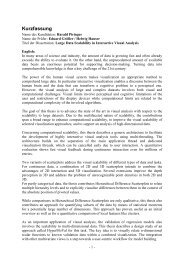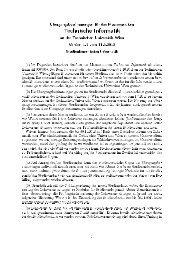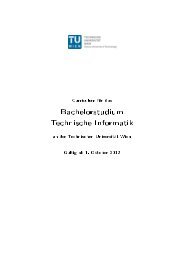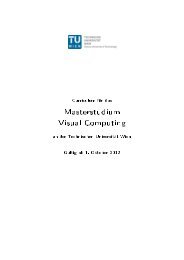Masterstudium Business Informatics - Fakultät für Informatik, TU Wien
Masterstudium Business Informatics - Fakultät für Informatik, TU Wien
Masterstudium Business Informatics - Fakultät für Informatik, TU Wien
You also want an ePaper? Increase the reach of your titles
YUMPU automatically turns print PDFs into web optimized ePapers that Google loves.
13. Übergangsbestimmungen<br />
Die Übergangsbestimmungen werden gesondert im Mitteilungsblatt verlautbart und liegen<br />
im Dekanat der <strong>Fakultät</strong> <strong>für</strong> <strong>Informatik</strong> der Technischen Universität <strong>Wien</strong> auf.<br />
A. Modulbeschreibungen<br />
BAE/INE - Information Economics and Social Simulation<br />
ECTS-Credits: 6.0<br />
Summary: This module deals with various important concepts of information in economics<br />
and the social sciences and shows ways to simulate socio-economic systems. In<br />
socio-economic systems heterogeneous individuals interact in networks, which heavily<br />
inuence the learning and decision making processes of these individuals. These micropatterns<br />
of behaviour lead to macrobehaviour of the society, which can be simulated in<br />
a realistic way by employing agent based computational simulation. In the lecture parts<br />
of the module important concepts are introduced and ways to simulate socio-economic<br />
systems are presented. In the project part of the module students employ and deepen<br />
this knowledge by working on and experimenting with computational social simulation<br />
models, especially with agent based models.<br />
Learning Outcomes:<br />
Knowledge:<br />
Skills:<br />
• Concepts of information in economics and the social sciences<br />
• Reasons for the complexity inherent in socio-economic systems and the limitations<br />
of common economic model, as well as those of simulation methods<br />
• The method of agent based computational simulation, its use and limitations<br />
• Limitations of economic models as well as alternative modelling methods<br />
• Employing agent based simulation to analyze socio-economic systems<br />
• Using Netlogo to rapidly develop a simple simulation model and thus understanding<br />
a wide range of scientic socio-economic simulation models<br />
Competences:<br />
• Some experience in team working on scientic projects<br />
• Being able to deepen knowledge on your own<br />
23


